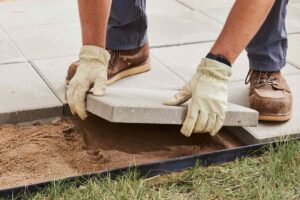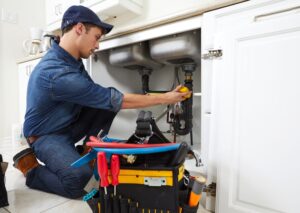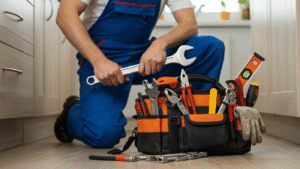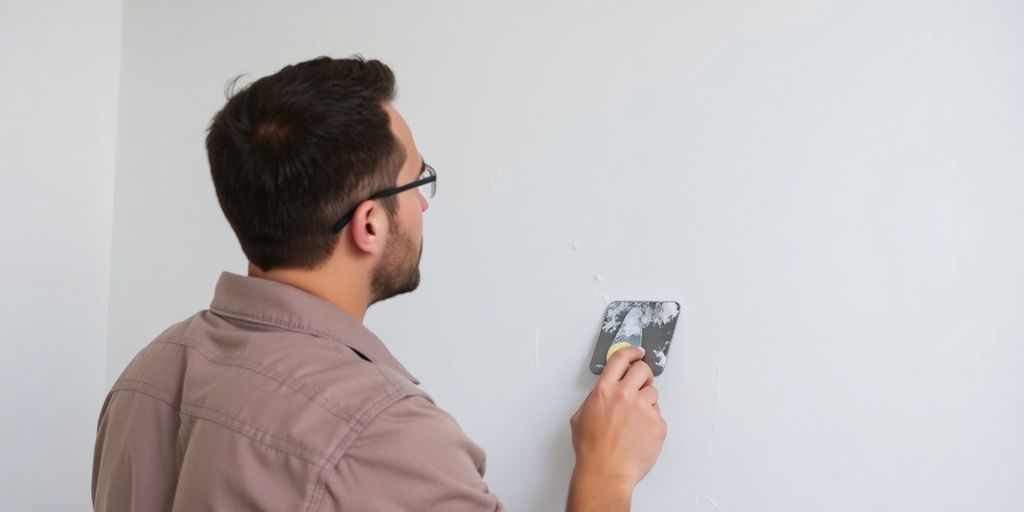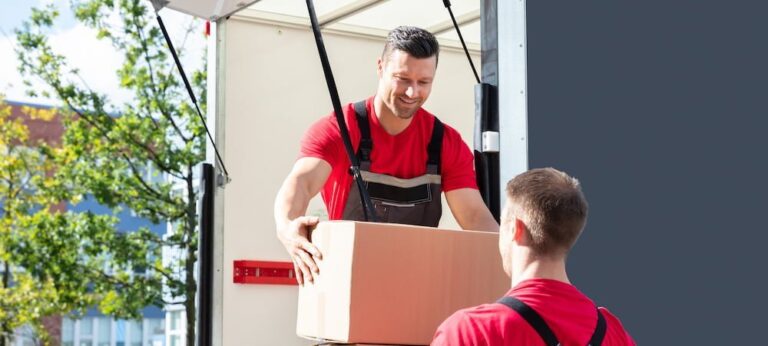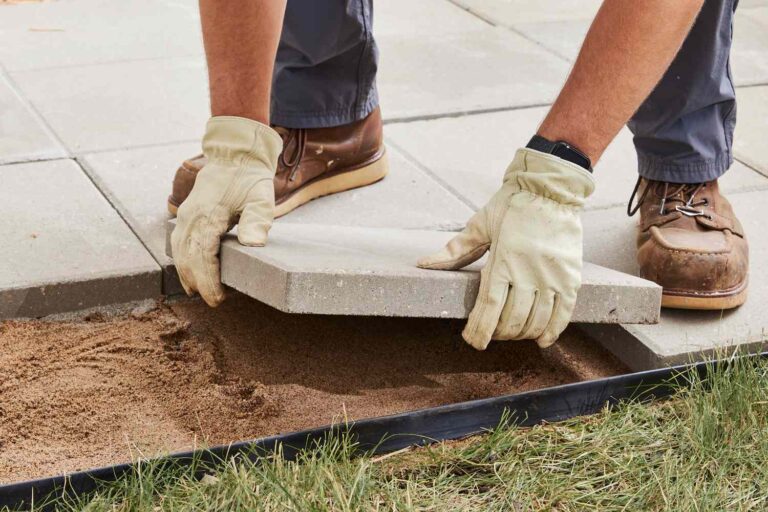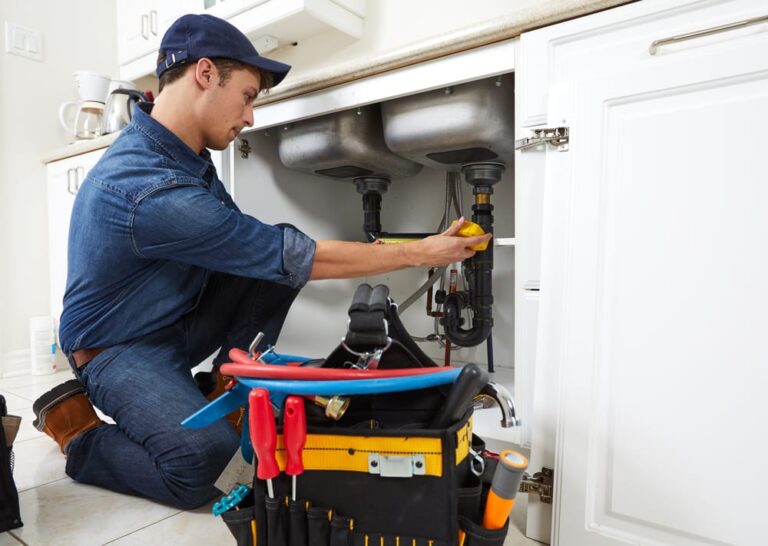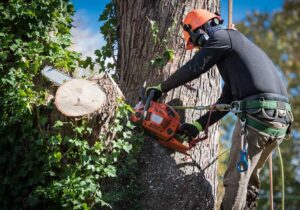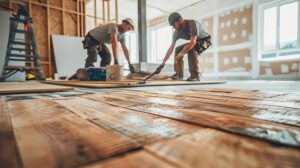Ever tried to find a good drywall taper in your area? It’s not as easy as you might think. With so many options, how do you know you’re picking the right one? Whether you’re fixing up a room or tackling a bigger renovation, having the right person for drywall taping can make all the difference. Let’s explore how to find the best drywall tapers near you and what to avoid.
Key Takeaways
- Look for tapers with solid attention to detail and a good track record.
- Experience matters. Choose someone who’s been in the field for a while.
- Customer reviews can give you a sense of what to expect.
- Watch out for red flags like lack of licensing or poor communication.
- Always check credentials and ask for references before hiring.
Understanding the Role of Drywall Tapers
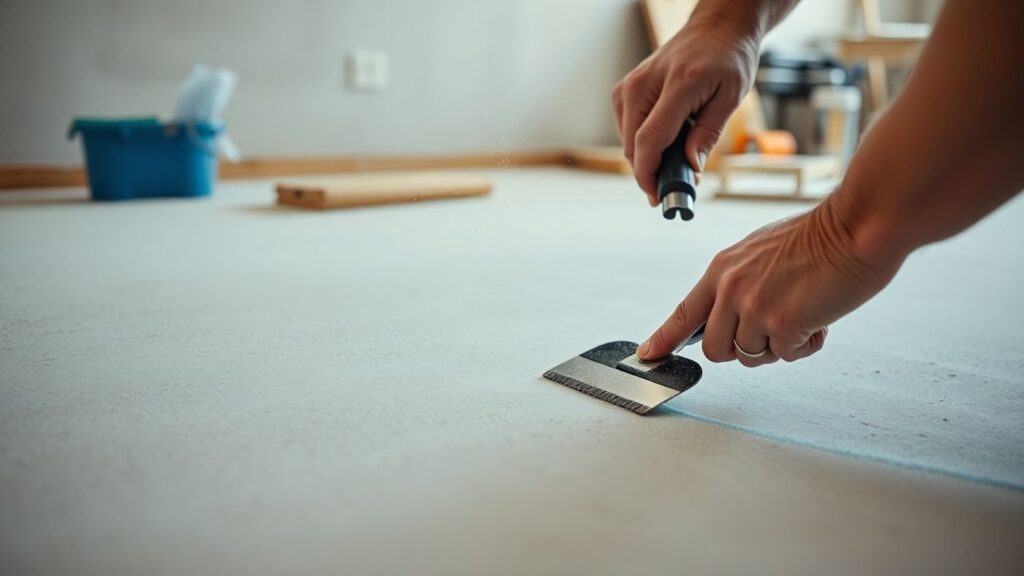
What Does a Drywall Taper Do?
Drywall tapers are the unsung heroes of wall finishes. Their primary job is to cover the seams between drywall panels with tape and joint compound, creating a smooth, even surface ready for painting or wallpapering. They ensure that walls appear seamless and flawless. This process involves applying multiple layers of compound, each sanded down to perfection, resulting in a surface that hides any signs of construction.
Skills Required for Drywall Taping
Being a drywall taper isn’t just about slapping mud on walls. It requires a steady hand, a keen eye for detail, and a good understanding of materials. Tapers need to know how to mix compounds to the right consistency, apply them smoothly, and sand them without creating more imperfections. They also need to be patient, as rushing can lead to visible flaws. Precision is key, and a good taper will spend time ensuring every seam and corner is just right.
Importance of Hiring a Professional
While it might be tempting to DIY your drywall taping, hiring a professional is often the better choice. Pros bring experience and skill that can save you time and ensure a superior finish. They know the tricks of the trade, like how to handle tricky corners or how to work with different drywall types. Plus, they have the right tools, which can make a big difference in the final look. A professional taper can transform your walls from a patchwork of panels into a single, continuous surface.
Qualities of the Best Drywall Tapers Near Me
Attention to Detail
A great drywall taper knows that the devil is in the details. Precision is key when it comes to taping, as even the smallest imperfection can be glaringly obvious once the paint is applied. They take their time to ensure that each seam is smooth and each corner is sharp. This meticulous attention to detail not only enhances the aesthetic appeal but also contributes to the durability of the finished wall.
Experience and Expertise
When searching for a drywall taper, experience is non-negotiable. An experienced taper has encountered and overcome a variety of challenges, from working with different types of drywall to dealing with unexpected structural quirks. They have honed their skills over numerous projects, ensuring they can handle any situation that arises. This expertise translates into a faster, more efficient process and a superior end product.
Customer Reviews and Testimonials
In today’s digital age, customer reviews are invaluable. The best drywall tapers will have a trail of satisfied clients who are eager to share their positive experiences. Look for reviews that highlight reliability, professionalism, and quality of work. Testimonials can provide insights into a taper’s work ethic and the overall satisfaction of their clients, helping you make an informed decision.
Hiring the right drywall taper can make a significant difference in the outcome of your project. By focusing on these key qualities, you can ensure that your walls are not only visually appealing but also structurally sound.
Red Flags to Watch Out for in Drywall Tapers
Lack of Proper Licensing
When hiring a drywall taper, one of the first things to check is their licensing. Proper licensing is non-negotiable. A licensed professional not only has the necessary skills but also adheres to local building codes. Unlicensed tapers might cut corners to save time or money, which can lead to substandard work. Always ask to see their license and verify its validity with local authorities.
Poor Communication Skills
Communication is key in any project. If a drywall taper struggles to communicate clearly or fails to listen to your concerns, it’s a major red flag. Misunderstandings can lead to mistakes, delays, and additional costs. You want someone who is responsive and can explain the process, timelines, and any potential issues that might arise.
Inconsistent Pricing
Be wary of tapers who provide vague or fluctuating estimates. Inconsistent pricing can indicate a lack of professionalism or an attempt to overcharge. It’s important to get a detailed quote upfront that breaks down the costs. Compare it with other quotes to ensure it’s reasonable. If a taper is charging significantly less than others, it might be too good to be true.
How to Verify the Credentials of Drywall Tapers
Checking for Licenses and Certifications
When hiring a drywall taper, it’s crucial to ensure they hold the necessary licenses and certifications. Licenses are a clear indicator that the professional has met specific industry standards and regulations. To verify, you can:
- Ask the taper directly for their license number and check it against your local licensing board’s database.
- Confirm any certifications they claim, such as those from trade schools or industry associations.
- Be wary of anyone who hesitates or refuses to provide this information.
Verifying Insurance Coverage
Insurance is another critical factor when hiring a drywall taper. It protects you from liability in case of accidents or damages. Here’s how you can verify their insurance:
- Request a copy of their insurance certificate and ensure it is up-to-date.
- Check if their policy includes both liability and worker’s compensation coverage.
- Contact the insurance provider directly to confirm the validity of the policy.
Asking for References
References offer insight into the quality and reliability of a drywall taper’s work. Don’t hesitate to:
- Ask for contact details of past clients and follow up with them about their experience.
- Inquire about the timeliness, professionalism, and quality of the work done.
- Look for patterns in feedback, both positive and negative, to get a clearer picture of what to expect.
Taking these steps might seem like extra work, but they can save you from future headaches and ensure you hire a competent and reliable professional.
Questions to Ask Potential Drywall Tapers
What is Your Experience Level?
When considering hiring a drywall taper, it’s vital to understand their experience level. Ask them how long they’ve been in the business and what types of projects they’ve handled. Experience can directly impact the quality of the work and the efficiency with which it’s completed. A seasoned professional is likely to have encountered various challenges and developed solutions, which can be beneficial for your project.
Can You Provide a Portfolio of Past Work?
Requesting a portfolio allows you to see the quality of their previous work firsthand. Look for consistency in their finishes and attention to detail. A good portfolio will showcase a range of projects, highlighting their ability to handle different styles and complexities. If they don’t have a physical portfolio, ask for references or contact information for past clients.
What is Your Estimated Timeline for Completion?
Understanding the timeline for completion is crucial for planning. Ask the taper for a realistic estimate of how long the job will take. This can help you coordinate with other contractors and manage your expectations. Be wary of those who promise an unrealistically quick turnaround, as this might compromise the quality of the work.
Understanding the Cost of Hiring Drywall Tapers
Factors Influencing the Cost
When you’re thinking about hiring a drywall taper, several factors can impact the overall cost. First off, the size of the project is a big deal. Larger spaces naturally require more time and materials, which can drive up costs. Materials themselves are another factor. The type and quality of the drywall and mud used can vary, affecting the price. Labor is probably the most significant chunk of your budget. Hiring a local installer can range from $1 to $2.10 per square foot, making labor a hefty part of the expense.
Average Pricing in Your Area
It’s good to have a ballpark figure in mind before you start. On average, the cost of hiring a professional drywall taper can range between $690 and $2,200, depending on your location and the specifics of your project. For a more detailed breakdown, consider these price ranges:
| Project Type | Cost Range |
| Small Repairs | $100 – $300 |
| Medium Projects | $700 – $1,500 |
| Large Installations | $1,500 – $3,000+ |
These numbers can fluctuate based on the complexity and scale of the work required.
How to Get a Fair Quote
To ensure you’re getting a fair deal, follow these steps:
- Get Multiple Quotes: Don’t settle on the first estimate you receive. Comparing quotes from different professionals can give you a sense of the going rate in your area.
- Check References: Always ask for references or reviews from past clients. This can give you insight into the quality and reliability of the taper.
- Clarify the Scope: Make sure the quote covers all aspects of the job, including materials, labor, and any additional fees. This helps avoid surprises later on.
Hiring a drywall taper can seem daunting, but understanding the costs involved and doing a bit of homework can lead to a successful project without breaking the bank.
The Importance of a Written Contract
What Should Be Included in the Contract?
A written contract is your safety net when hiring a drywall taper. It should clearly outline the scope of work, including all the tasks to be performed. Be sure to specify the materials to be used and any specific brands if you have preferences. The timeline for completion is another critical element, along with payment terms and conditions. Make sure the contract includes a clause for dealing with unexpected issues or changes, ensuring you’re not caught off guard by surprises.
Benefits of Having a Contract
Having a contract isn’t just about formality; it’s about protection. A well-drafted contract helps prevent misunderstandings and disputes by making sure everyone is on the same page. It provides a legal framework to resolve any issues that may arise during the project. Moreover, it ensures that the contractor is held accountable for the quality and timeliness of their work. With a contract, you have a document that backs you up if things go south.
How to Negotiate Contract Terms
Negotiating contract terms can feel daunting, but it’s essential to get it right. Start by discussing the scope of work and ensure everything you need is covered. Don’t hesitate to ask for clarifications on any terms you don’t understand. It’s also wise to negotiate payment schedules that align with project milestones—this way, you only pay for work that’s completed to your satisfaction. Remember, communication is key; a good contractor will be open to discussing and adjusting terms to meet your needs.
A written contract is more than just a piece of paper; it’s a mutual agreement that sets the foundation for a successful project. Without it, you’re leaving too much up to chance.
Common Mistakes Made by Drywall Tapers
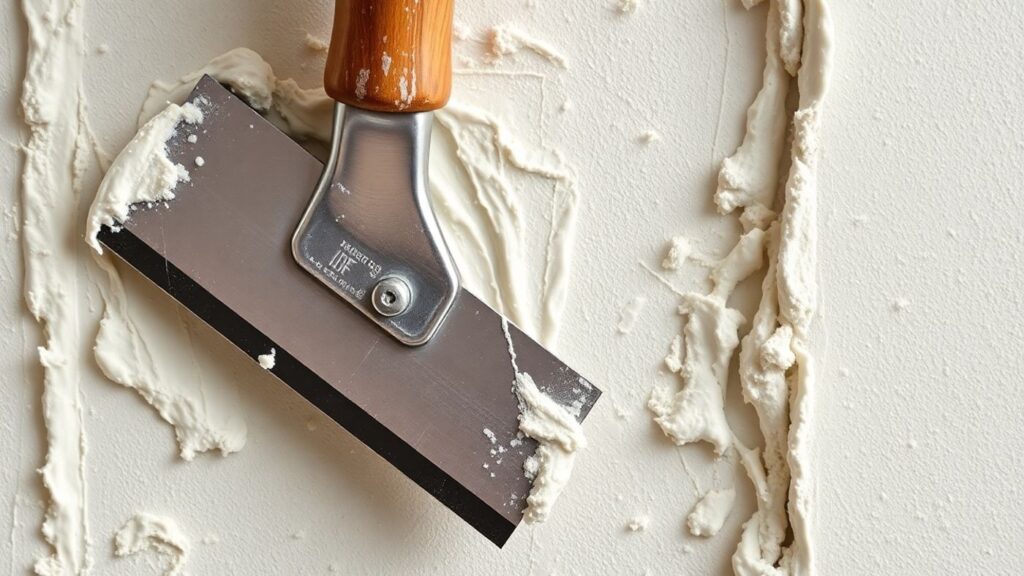
Using the Wrong Type of Mud
Choosing the right type of mud is crucial for a successful drywall taping job. There are different types of mud, such as ‘quick-setting’ compounds, ‘all-purpose’ mud, and ‘topping’ compound. Each has its own use. Quick-setting compounds are great for filling gaps because they cure fast and shrink less. ‘All-purpose’ mud is strong and adheres well, making it ideal for taping and initial coats. The ‘topping’ compound is easier to sand and perfect for final coats. Using the wrong type can lead to more work and a less smooth finish.
Improper Sanding Techniques
Sanding is a critical step that can make or break the finish of your drywall. Many tapers either over-sand or under-sand, which can lead to uneven surfaces. It’s important to sand lightly and evenly, checking your work with a light or by hand to spot imperfections. Over-sanding can expose the tape, while under-sanding leaves a bumpy surface.
Ignoring Temperature and Humidity
Environmental factors like temperature and humidity can significantly affect drywall taping. High humidity can cause mud to dry slowly, leading to longer project times and potential mold growth. On the other hand, low humidity can make mud dry too quickly, causing cracks. It’s essential to maintain a consistent environment to ensure the mud sets properly.
Consistency in your taping process is key. Whether it’s the type of mud you use, your sanding technique, or the environment you work in, small mistakes can lead to significant issues later on. Keeping these factors in check will help ensure a smooth, professional finish.
Tips for Working with Drywall Tapers
How to Communicate Your Needs
When it comes to working with drywall tapers, clear communication is key. Start by discussing your project details and expectations upfront. Make sure you both understand the scope of work, timelines, and any specific requirements you might have. It’s helpful to provide visual aids or sketches if possible, as these can clarify your vision and prevent misunderstandings.
Setting Clear Expectations
Before the work begins, set clear expectations regarding the quality and finish you desire. Discuss the number of coats of mud needed and the level of smoothness you expect. Outline any specific deadlines or milestones. This helps to ensure that both parties are on the same page and reduces the likelihood of disputes later on.
Ensuring a Smooth Project Workflow
To keep the project running smoothly, maintain regular check-ins with your taper. This can be a quick daily update or a more detailed weekly meeting, depending on the project’s complexity. Address any issues as they arise to prevent them from escalating. Also, ensure the work area is prepared and free of clutter to allow the taper to work efficiently.
Collaboration with your drywall taper can make or break your project. By fostering a cooperative and communicative environment, you ensure that the final results meet your expectations and that the process is as stress-free as possible.
The Impact of Quality Drywall Taping on Home Value
Enhancing Aesthetic Appeal
A smooth, well-finished wall can make a world of difference in how a room looks. Quality drywall taping gives your walls a seamless appearance, making paint and wallpaper look their best. It’s like the difference between a tailored suit and something off the rack—one fits perfectly, the other just doesn’t. When potential buyers walk into a house, the walls are one of the first things they notice. Even subtle imperfections can stand out, especially in natural light.
Preventing Future Repairs
Good drywall taping isn’t just about looks. It also helps prevent issues down the line. Properly taped drywall joints are less likely to crack or peel, which means fewer repairs in the future. This is particularly important in areas with fluctuating temperatures or high humidity, where expansion and contraction can wreak havoc on poorly finished walls.
Increasing Property Value
Investing in professional drywall taping can actually boost your home’s market value. Homes with high-quality finishes often sell faster and at higher prices. Buyers are willing to pay more for a home that needs less immediate work. It’s an investment that pays off, not just in terms of aesthetics but also in financial return.
Investing in professional drywall work may seem costly upfront, but it pays dividends in the long run by enhancing your home’s appeal and value.
DIY vs. Hiring a Professional Drywall Taper
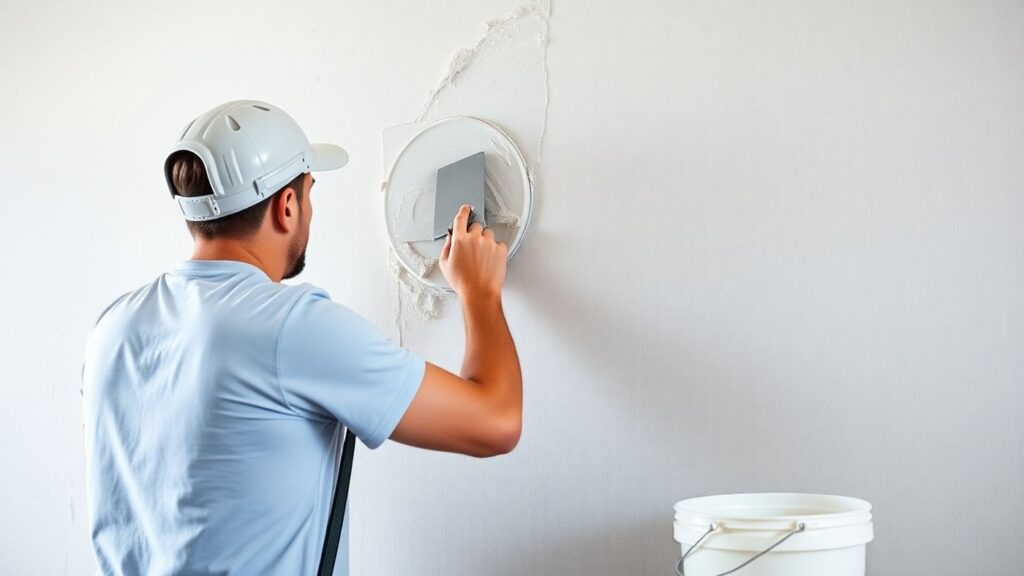
Pros and Cons of DIY Drywall Taping
Taking on drywall taping yourself might seem like a good way to save money, but it’s not always as simple as it appears. Doing it yourself can be rewarding, especially if you’re a hands-on person who loves tackling home projects. You get to work on your own schedule, and there’s the satisfaction of seeing a project through from start to finish.
However, the cons can outweigh the pros for many. DIY drywall taping requires patience and skill. It can be time-consuming, and mistakes are costly. If not done correctly, it can result in uneven surfaces or visible seams, which might require you to redo the entire job.
When to Consider Hiring a Professional
If you’re aiming for a flawless finish, hiring a professional might be the best option. Hiring a professional ensures you get high-quality results without the hassle of doing it yourself. Professionals have the experience and tools to tackle even the most challenging projects. They can save you time and likely prevent the headaches that come with DIY mishaps.
Consider hiring a professional if:
- You have a large area to cover.
- The project requires intricate work, like around windows or corners.
- You have a tight deadline and need the work done quickly.
Cost Comparison Between DIY and Professional Services
When comparing costs, it’s important to consider both time and money. While DIY might seem cheaper upfront, the cost of materials, tools, and potential corrections can add up. Plus, the time you spend might be more valuable than you think.
Here’s a quick comparison:
| Aspect | DIY Cost | Professional Cost |
| Materials & Tools | $150 – $300 | Included |
| Time | 20 – 40 hours | 5 – 10 hours |
| Quality of Finish | Varies | Consistent |
In the end, the decision comes down to your personal situation, skills, and what you value more: time or money. Sometimes, paying a bit more for a professional service can save you from a lot of stress and ensure a polished result.
When deciding between doing your own drywall taping or hiring a pro, think about your skills and time. If you want a perfect finish without the hassle, hiring a professional might be the best choice. But if you’re up for a challenge and want to save some cash, DIY could be the way to go. For more tips and tricks on drywall projects, visit Drywall Tapers Near Me!
Wrapping It Up: Finding the Right Drywall Taper
So, there you have it. Picking the right drywall taper isn’t just about finding someone who can slap on some mud and tape. It’s about finding a pro who knows their stuff and can make your walls look like a million bucks. Remember, a good taper will have a keen eye for detail and won’t cut corners. They’ll be upfront about costs and timelines, and their past work will speak for itself. On the flip side, steer clear of anyone who seems too eager to get started without asking the right questions or who can’t provide references. In the end, taking the time to find the right person will save you headaches and money down the road. Happy renovating!
What exactly does a drywall taper do?
A drywall taper smooths out the joints between drywall panels using tape and joint compound, making the surface ready for painting or wallpapering.
Why is it important to hire a professional drywall taper?
Hiring a professional ensures a smooth, seamless finish, which is crucial for the final appearance of your walls. They have the skills and experience to avoid common mistakes.
What exactly does a drywall taper do?
A good drywall taper should have attention to detail, steady hands, and experience with different taping techniques and materials.
How can I check if a drywall taper is licensed?
You can ask the taper directly for their license number and verify it with your local licensing authority to ensure they are properly certified.
What are some warning signs of a bad drywall taper?
Red flags include lack of proper licensing, poor communication, inconsistent pricing, and negative customer reviews.
How do I get a fair quote for drywall taping?
To get a fair quote, compare prices from multiple contractors, check their references, and ensure the quote includes all necessary materials and labor.
Why is a written contract important when hiring a drywall taper?
A written contract ensures that all terms are clear and agreed upon by both parties, reducing the risk of misunderstandings and disputes.
Can I do drywall taping myself, or should I hire a professional?
While DIY is possible for small projects, hiring a professional is recommended for larger jobs to ensure a high-quality finish and to avoid costly mistakes.


